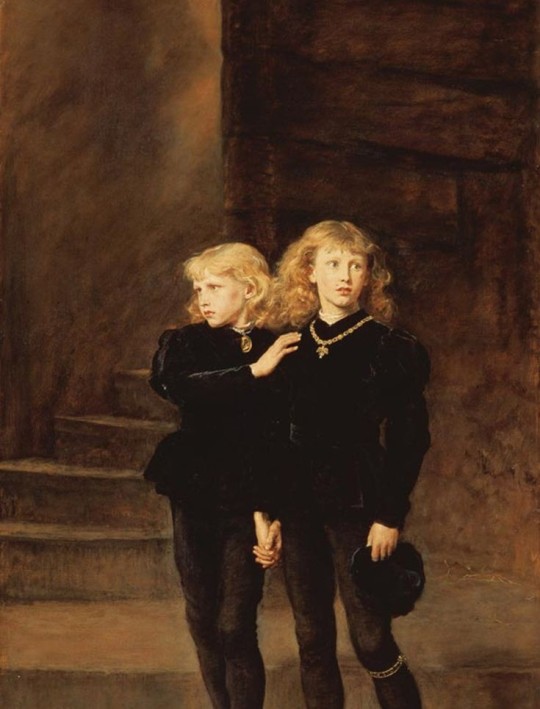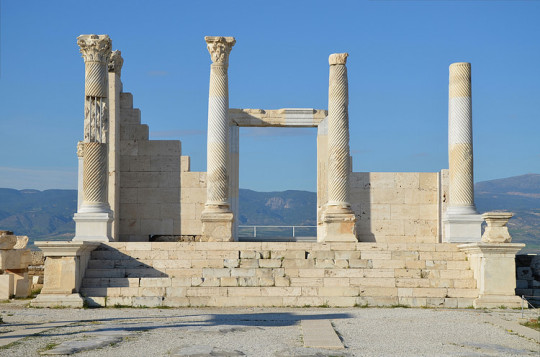#Alexander the Great's campaigns
Explore tagged Tumblr posts
Note
Hello Dr. Reames! Why do you think Alexander never set his sights on the conquest of Sicily - a rich island with longstanding Greek presence? Is it because when he came to the throne the plan to invade Persia was already on its way? I understand that Rome was a backwater town at this point and that Persia was the bigger prize, but Sicily always remained rich and hotly disputed
Inertia had a lot to do with Alexander’s choice, plus SIZE of the conquest, plus a plausible reason for the attack. I’m going to address these backwards.
Sicily, at least in the east, was—as you note—Greek, it’s largest city, Syracuse, Corinth’s most famous (and successful) colony. If conquest was still a valid reason for war in his world, increasingly parameters were put on it. We may understand these as window dressing concealing motives often economic (“follow the money,” ancient version). Yet by the 4th century, attacks on “fellow Greek” city-states needed some sort of rationale beyond naked ambition—often a current or historical beef.
Hence, Philip’s reason for attacking Persia (all about the money) was vengeance for the Greco-Persian Wars of over a century prior.
Another example, with Sicily in particular: Athens attacked Syracuse during the Peloponnesian War because she wanted Sicilian timber (for naval construction), after Brasidas of Sparta had convinced Perdikkas II of Macedon to cut off Macedonian timber—which had been Athens’ supply since the Greco-Persian Wars. Yet Athens justified the attack because Syracuse was a daughter-city of Corinth and Corinth was a member of the Peloponnesian league. Not to mention the war began due to Athenian-Corinthian aggression. So, by extension, Syracuse was tagged as an enemy of the Delian League (e.g., Athens’ not-so-covert empire), and ripe for hostilities.
Alexander didn’t have a ready-made excuse to attack Sicily. He probably could have found one, if he’d really wanted to, but this brings me to my second point.
Sicily is just not that big. And if some of her cities were wealthy enough, they didn’t begin to compare to Persia. When it comes to Alexander, “Think small” was never his modus operandi. LOL. Sicily would have been regarded like the Greek city-states of Anatolia (Asia Minor): a worthy acquisition…on the way to Bigger and Better. Yet Sicily lay west…not on the way to Bigger and Better. Just then. (more below)
Last, and the real reason: simple inertia.
Persia was the campaign his father had planned for probably a decade, and had fought south Greece to line up support for, culminating in the Battle of Chaironeia and the League of Corinth. Alexander did have to spend his first two years re-pacifying the Thracian and Illyrian north, not to mention re-fight Thebes to keep the south quiet … but PERSIA was what he’d been hearing about for years—what all Philip’s alliances were formed to pounce on.
To suddenly change and set his sights west on Sicily wouldn’t have made much sense, not to mention it would have alienated some of the city-states he needed (particularly his naval allies). He couldn’t have sold it as a “Panhellenic” crusade in revenge for the Greco-Persian War.
So, basically, I doubt it would ever have occurred to Alexander to sail west to attack Sicily when Persia was the bigger—and long planned upon—prize.
Now, let me add that—if academic speculation is correct and Alexander was setting up a campaign against Carthage near the end of his life—it’s quite likely that Sicily, and especially Syracuse, would have figured into that…but as allies, just as later with Rome. Carthage had long held the western part of Sicily, and struggled with the Greeks in the east for control of the whole. Conflicts with Carthage are why Syracuse invited in Rome for what became the First Punic War.
By the end of his life, and after Agis’s Revolt was crushed, Alexander was such a power, the Greek city-states had mostly given up opposing him. They contented themselves with snarky remarks and symbolic gestures—until after ATG’s death, when they rose up to try and oppose Antipatros in the Lamian War…which failed.
Yet if we could suppose Alexander had recovered from his last illness and did attack Carthage, Syracuse (et al.) would have been all over that. They’d have stood to benefit handsomely in territorial acquisitions. And at that point in time, Alexander probably was the only power that could have beaten Carthage on the water.
Hope this helps to explain why Alexander’s focus was always Persia.
A last thing: the nature of the Greek landscape, with the formidable Pindus Mountains down the center, had divided the peninsula east and west for centuries. The city-states on the east fronted the Aegean Sea, while those on the west fronted the Corinthian and Adriatic Seas. This affected both colonization and conquest ambitions. So eastern city-states tended to look east and western (including the Peloponnesos) tended to look west.
Macedon looked east. By contrast, Epiros looked west. That’s why Alexander of Epiros went to Italy while his nephew went to Persia. Never underestimate the impact of simple geography on history in the ancient world.
#asks#ancient Sicily#Syracuse#Alexander the Great#ancient Macedonia#ancient Greece#Alexander the Great's campaigns#Philip of Macedon#ancient Persia#Peloponnesian War#Greco-Persian War#Alexander the Great's ambitions#Classics
17 notes
·
View notes
Text
just humiliating to start reading the Iliad for the first time and to be like oh dang this is really good i wonder what happens next
#has anyone else ever read this???#i think this book would have been a really good read for alexander the great during his campaigns#wonder if he knew about it
7 notes
·
View notes
Text
can't help but wonder how different things might have been if Alexander caught Darius before Darius got murdered. if he would have gone more east still, if he would've gone to India, how different the campaign might have been if he didn't have to fight for every satrapy because the old great king got killed by his advisors
would he have even Gone there, if he captured the king, if his claim was legitimate in such way? or would he still press on out of curiosity?
#litchi.txt#atg#alexander the great#can you see????? that the way the bactrian/sogdian campaign fuck me up???#i always hate reading about them because its just painful to read#like shit. it all fell to pieces so fast#it feels like years wasted and anger and resentment and i can understand how that campaign might have changed him#just reading about it makes me itch. i cant imagine what it must have actually been like
6 notes
·
View notes
Text

I hear that Winston has arrived, and suppose we shall see him within the next few days. He certainly is a very plucky fellow, and I think that he ought to be given a VC, and then taken out and shot. I wonder what sort of reception he will get if he comes among the troops - whether they will cheer him, or shoot him - I think the former. 23/7/1915
Major-General Alexander Godley writing to Sir Ronald Graham, about the impending visit of Winston Churchill to the Gallipoli Peninsula.
28 notes
·
View notes
Text
Thinking about Kalanos... thinking about Kalanos and his self immolation... thinking about what it represents in the life of Alexander and how it affected him in the later part of his life... thinking about how it's emphasized in Arrian's Campaign of Alexander... as I often do.
#btw Arrian's Campaigns of Alexander is my favorite Alexander the Great biography#in case you were wondering#classics#alexander the great#kalanos#macedonia#ancient greece
3 notes
·
View notes
Text
::raises hand:: hi local numpty here with a dumb question: How effective would the stabby part be? Would it actually stab or would it be more slicing?
Demonstrating the rope dart (繩標; sheng2biao1)
[eng by me]
#also thank u for mentioning the benefits of flexible weapons#the one I'm familiar with is the one flexible spear thingy from Macedonian Greece#used by this one obscure general named Alexander the Great on his campaigns#must've worked!
56K notes
·
View notes
Text

Brill's Companion to the Campaigns of Philip II and Alexander the Great
#Brill's Companion to the Campaigns of Philip II and Alexander the Great#Brill#alessandro magno#alessandro iii di macedonia#alexander the great#prossime uscite#alessandro il grande#alessandro il macedone#alexander the conqueror#alessandro il conquistatore#alexander iii of macedon#alexander of macedon#Edward M. Anson
0 notes
Text
Fantasy Guide to the Death of Monarchs

(no, unfortunately this is not a how to guide. Special Branch can now unhitch from outside my house)
To quote The Lion King... The Circle of Life. Monarchs are born, they live, they die. But what exactly happens when a monarch dies?
Dying

The monarch is on their deathbed. Their family, their friends, their advisers (their bit on the side sometimes) are lingering in the room or in the corridor. But of course, death isn't always expected. Usually, if the death is sudden, such as during a military campaign or an assassination, there is a scramble to preserve the news of the death for a time in order to make the necessary arrangements.
Causes of Death

"... Let us sit upon the ground. And tell sad stories of the death of kings; How some have been deposed; some slain in war, Some haunted by the ghosts they have deposed; Some poison'd by their wives: some sleeping kill'd; All murder'd," - William Shakespeare, Richard II.
Monarchs die like everybody else. They can die from anything. Disease (Alexander the Great), death at war (Richard I), assassination (Philip III of Macedonia), old age (Elizabeth II), starvation (Richard II), misuse of a hot poker (Edward II), murder at the hands of family (Edward V), childbirth (Jadwiga of Poland), accident (William of Orange... Pussy) , poison (Emperor Claudius) or on the toilet (George II). The death of a monarch is something at will be contested sometimes. If the body is not seen, there may be a belief that they live on. If the monarch dies suddenly, there may be rumours of foul play. No matter how a monarch dies, it will lead to uneasiness.
After Death

The steps after the monarch dies, usually include securing the next heir, proclaiming them to the people, and then working toward a clean succession. This time is delicate, it can be the breeding ground of coups and treacheries. Any claim other than the designated heir must be silenced by the proclaimation of the next sovereign as soon as possible. Child monarchs are extremely at risk during this period as the adults around them will seek to take custody of them. They who hold the monarch hold the power. It is imperative that the heir be notified at once so the stability of the kingdom can be assured.
The X is dead, Long Live the Next Guy

Once they breathe their last, all attention will turn to the next monarch or the scramble to find one. Be it by succession by blood or an election, the designated successor will immediately (even in the absence of a coronation) become the next monarch. Likely they will have been near their predecessor, either at their bedside or at least in shouting distance. But if they are away, they will quickly return to claim their throne. Without delay. Elizabeth II was actually on royal tour when she recieved news her father had died, leading to a hasty scramble back home.
When things don't go according to plan

The monarch passes away. There are tears. Sometimes. There are sometimes coups as I mentioned. Young would be monarchs could be kidnapped, eg. Edward V. Another heir claims the throne instead of the designated heir, eg Lady Jane Grey and King Stephen. Monarchs who die on battlefields can have their bodies stolen (James IV of Scotland) or thrown into a ditch with their crown snatched (Richard III). The death of a monarch is a delicate time and dangerous for all royal family members. In some instances, it would lead to murder. If a son of a previous Ottoman Sultan wished to be the next Sultan, they would order the mass murder of their brothers upon their father's death - usually death by strangulation.
Funeral

The funeral of the monarch is something that is usually planned from day one. There would be some sort of plan in place for the funeral, the when, the where and the how. The monarch might know these plans but the upper rank of courtier and aides would know. Funerals would follow a certain pattern, likely adapting from previous funerals. They would be a public, a lavish ceremony that would see to the closure of businesses, entertainment venues, the arrival of foreign dignitaries and a long procession of the body surrounded by military forces, watched over by the grieving public. If they actually liked the monarch. Some deaths of Kings were met without any sadness such as George IV. There might also be lavish games thrown in the monarch's honour.
Mourning

Mourning is the period of time that the country, the court and royal family grieves publicly. It can last a week or so, like today. Or up to a year. In China, sometimes mourning lasted 3 years or more. Mourning period often came with strict rules about what one could do or dress in. In Edwardian times, there were stages in mourning. Full mourning could last up to a year, with women wearing black with very little ornament and widows covering their hair with bonnets of veils. Second mourning (6-9 months), women's clothes could be adorned with trimming and finally half mourning is the 3-6 month period where colour started to be reintroduced, restricted at first to greys and mauves. There would be no balls, no parties, no sporting during the deepest part of mourning.
#Fantasy Guide to death of a monarch#Death of Monarchs#writing#writeblr#writing resources#writing reference#writing advice#writer#spilled words#writer's problems#writer's life#Writing guide#Writer research#Writer resources#Royal funeral#Royalty#Royal#Royalty and nobility
385 notes
·
View notes
Text
Sims In Bloom: Generation 2 Pt. 149 (A New Pet - And a New Landgraab Problem?)






Captain Whitaker made himself right at home at the Gordon house on Sable Square. When Lavender returned from daycare on his first day as a reanimated dog, the Captain was thrilled to meet the energetic toddler who loved pets.
He also celebrated discovery of the chicken coop in the backyard, and he loved to chase the cats. It had been a while since Heather and Conrad needed to train bad habits out of a new pet, but they were happy to do it, because Captain Whitaker fit their family like a glove.
Heather's sister, Hazel, dropped by for breakfast one morning, on her way to help Alexander Goth put together his application to run for mayor.

"It's a long process and the town hasn't had an election in close to forty years, but Alex has a lot of really great ideas to make the Bay even better," Hazel said. "I really believe in him, and he needs more help with his campaign now that he's doing midnight feedings with baby Carina."
At the mention of Alex and Lydia Goth's second child, newborn Carina, Heather rubbed her belly as she felt her own baby kick. "I'd love to see this town running smoothly with a real mayor at the helm. The water shut-offs we've had to deal with lately make it so much harder to get the kids bathed, and the dogs, let alone us!"

"I hate to sound like Dad, but get a dew catcher. It rains enough on the coast you could collect enough water to last for weeks!"
"What's a dew catcher?" wondered Lavender.
"It stores water for when there's drought or the pipes freeze in winter. It's kind of like recycling the rain," Hazel explained, and Lavender nodded along thoughtfully.
"What's recyclig?"

"It's when you take something and use it again for something else, rather than getting something new, because it's better for the environment. Like new toys. If you bought a used toy, it would be recycled, as opposed to a new toy from a store."
"Used toys are better for the envi-erment?"
Hazel nodded. "Yeah, because new production uses a carbon footprint, and you want that carbon footprint to be as small as possible to help the planet."

Heather glanced pleadingly at Hazel, launching into one of her public policy talks with a four-year-old. "Why don't you get your Aunt Hazel to read you a story before she goes to work?"
Lavender smiled, dragging Hazel to the living room and picking out a book. "Can you do the voices again, too?"
"Of course, Lava. I can't read you a story without doing the voices!"
"No you can't!"

Lavender wasn't the only one in the household interested in books. Ash had picked up as many books on time travel from the library as he could, and he'd barely put them down since. If he was supposed to invent time travel, he had to understand it first.
Heather and Conrad were wary of what he was learning, but they'd encouraged Felix and Lilith to pursue it before they knew what Marco had said. Ash promised to leave the actual time travel to the adults, so they allowed him to study books like Theoretical Electronics and A History of Time Travel to offer assistance to Felix and Lilith - but only if they needed it.

Conrad accompanied him to the local library to return a few books he'd finished and check out a few more, bringing the dogs to run around. They sat in bright inflatable chairs that seemed out of place in the old wooden building. But the local historian and librarian, Gunther Lynx-Munch, said they'd been dropped off by an anonymous donor and he didn't want them to go to waste.
As he thumbed through the books on the shelves, Conrad turned to his stepson. "Are you really interested in all this time travel stuff?"
Ash shrugged. "Felix and Lilith say Emit's nice. What if changing the future changes him, too? I don't want to change the future too much, but I don't want to be feared. If I do help Felix and Lilith, I don't mind people not knowing I did it."


That night, Heather prepped fruit for Ash's school lunch while Conrad was bent over the sink to repair the plumbing. "Malcolm called again," she groused. "He's so interested in Ash's counseling sessions all of a sudden."
"I think this time travel and seeing ghosts stuff freaks Malcolm out a bit."
"He doesn't even think it's real!" She closed the fridge door with a heavy thud to put away the sliced fruit. "I think he's plotting something. With his mother."

Conrad finished with the plumbing and dried his hands, wrapping his arms around her and cradling her stomach. "Like what?"
"He's acting like I can't take care of our son, as if he wasn't flirting with Miko instead of watching Ash when he was taken. He actually said 'It can't be easy to move around that small house with all those animals.' They have a dog!"

"Don't get upset," he pleaded gently. "Has Malcolm ever been worth it?"
She forced herself to breathe, letting herself fall into his embrace. "I love you. I just worry about Ash all the time lately."
"I love you, too. Let's get some sleep; the baby needs it. We can worry about everything again in the morning."

Despite her fear and worry, the days were busy and long. Pregnant Heather was easily fatigued, and she soon fell asleep in Conrad's arms. ->
<- Previous Chapter | Gen 2 Start | Gen 2.1 Summary
Gen 1 Start | Gen 1 Summary
#sims 4#sims 4 gameplay#sims 4 screenshots#sims 4 legacy#sims in bloom#ts4#ts4 gameplay#ts4 legacy#ts4 screenshots#sims 4 story#ts4 story#legacy challenge#sims legacy#ts4 legacy challenge#gen 2#brindleton bay#blast from the past event
91 notes
·
View notes
Photo

Phrygia
Phrygia was the name of an ancient Anatolian kingdom (12th-7th century BCE) and, following its demise, the term was then applied to the general geographical area it once covered in the western plateau of Asia Minor. With its capital at Gordium and a culture which curiously mixed Anatolian, Greek, and Near Eastern elements, one of the kingdom's most famous figures is the legendary King Midas, he who acquired the ability to turn all that he touched to gold, even his food. Following the collapse of the kingdom after attacks by the Cimmerians in the 7th century BCE, the region came under Lydian, Persian, Seleucid, and then Roman control.
Historical Overview
The fertile plain of the western side of Anatolia attracted settlers from an early period, at least the early Bronze Age, and then saw the formation of the Hittite state (1700-1200 BCE). The first Greek reference to Phrygia appears in the 5th-century BCE Histories of Herodotus (7.73). The Greeks applied the name to the Balkan immigrants who, sometime after the 12th century BCE, relocated to western Anatolia following the fall of the Hittite Empire in that region. The kingdom's traditional founder and first king was Gordios (aka Gordias). A legendary figure, Gordios is most famous today as the creator of the 'Gordian Knot', a fiendishly difficult piece of rope-work the king had used to tether his cart. The story goes that an oracle had foretold that the person who knew how to untie the knot would rule over all of Asia, even the whole world. The cart and the knot were, incredibly, still there at Gordium when Alexander the Great (356-323 BCE) arrived a good few centuries later. Alexander was said to have heard the story and, rather unsportingly, sliced the knot open with a single blow of his sword. In other accounts, the young general slipped the pin out of the cart's yoke pole and slid the knot off that way.
The neighbouring states of Phrygia, which similarly formed out of the remnants of the Hittite Empire, were Caria (south), Lydia (west), and Mysia (north). Phrygia's territory expanded to reach Daskyleon in the north and the western edge of Cappadocia. Phrygia prospered thanks to the fertile land, its location between the Persian and Greek worlds, and the skills of the state's metalworkers and potters. Chamber tombs, especially at the capital Gordium, have distinctive doorways and their excavated contents have revealed both the use of the language of Indo-European Phrygian (from the 8th century BCE) and the wealth which gave rise to the legend of the fabulously rich King Midas (see below).
Phrygia was conquered by the Cimmerians in the 7th century BCE but the period of domination by Lydia and Persia has left an impoverished archaeological record. We know that Lydia expanded under the reign of the Mermnad dynasty (c. 700-546 BCE), and especially King Gyges (r. c. 680-645 BCE). Phrygia was absorbed c. 625 BCE with Gordium conquered around 600 BCE. Lydia then continued to prosper with such famed kings as Croesus (r. 560-547 BCE). Over the next century, the Persians took over Anatolia following the victory of Cyrus II (d. 530 BCE) over the Lydians at the Battle of Halys in 546 BCE. The region was then made a Persian satrapy. Phrygia continued to be used as a label of convenience for the general and ill-defined geographical area which had once been ruled by the now-defunct kingdom of that name.
After the campaigns of Alexander the Great, the region of Phrygia/Lydia came under the control of one of Alexander's successors, Antigonus I (382-301 BCE). Shortly after, Anatolia became a part of the Seleucid Empire c. 280 BCE. As a consequence of this takeover, many settlers came from ancient Macedon and their Hellenistic culture with them. Notable Phrygian towns in this period besides Gordium included Hierapolis, Laodikeia by the Lykos (aka Laodicea), Aizanoi, Apamea, and Synnada, although most of the region's population lived in small, agriculturally-based villages.
Phrygia became a part of the Roman province of Asia (with a part in Galatia, too) in 116 BCE, and the region now grew in scope, at least as a geographical term. To quote the Oxford Classical Dictionary:
During the Roman period the region extended north to Bithynia, west to the upper valley of the Hermus and to Lydia, south to Psidia and to Lycaonia, and east as far as the Salt Lake (1142).
Phrygia then became embroiled in the Mithridatic Wars of the 1st century BCE between Rome and the kings of Pontus. With the reign of Augustus (27 BCE - 14 CE), there followed a period of peace and stability in the region. Prosperity was ensured by the continued fertility of the land and the important marble quarries near Dokimeion - stone from there would be used in such buildings as Trajan's Forum in Rome and the Library of Celsus at Ephesus. Into the 3rd century CE, the culture of the region had become a mix of indigenous Anatolian, Greek, Roman, Jewish, and Christian practices and customs. The Phrygian language, as attested by inscriptions, was still in use in the 3rd century CE, although it is called New Phrygian by historians to distinguish it from the Old Phrygian used when the kingdom itself was in existence (the link between the two was likely created by the language being spoken only as a vernacular in the interim).
Continue reading...
123 notes
·
View notes
Text











Urquhart Castle.
It is thought that as far back as the 6th century Urquhart was home to Bridei, King of the Picts and in AD 580 was visited by St. Columba. Although it cannot be certain that this Pictish residence was indeed on the site of the current castle, some archaeological evidence supports it and the superb geographical position would have made it an ideal location.
The first known castle was built by the Durward family around the 1230s after they were granted permission to do so by King Alexander II. During the Wars of Independence, Urquhart Castle was seized by the English. However, following their defeat at the Battle of Stirling Bridge in 1297, the garrison at Urquhart either abandoned or surrendered the castle.
In 1303 Edward I invaded again and once more took Urquhart, until Robert the Bruce’s campaign in 1308. Thereafter, the castle remained a royal Scottish stronghold until 1509 when it was granted to Clan Grant. This brought it into the frontline as clan warfare broke out between the MacDonalds and the Grants, culminating in the ‘Great Raid’ of 1545 where Urquhart was stripped of virtually everything of value. An info board in the castle cleverly described the looting as a MacDonald takeaway menu! The plunder stripped from the castle included: Tuelf feddir beddis, with the bowstairs, blancattis and schetis (twelve feather beds with bolsters, blankets and sheets) Five pottis, sax pannys, two brew calderovnis, ane bascyn, sax speittis (five pots, six pans, two brewing vats, one basin, six roasting spits) Lokkis, durris, zettis, burdis, beddis, chearis, formes (Locks, doors, iron gates, tables, beds, chairs, benche), and Thre grite boittis (three great boats).
Urquhart Castle was last garrisoned in 1689 when James VII fled in the wake of the Glorious Revolution. The Government force withstood the subsequent Jacobite uprisings but in 1692 blew up key sections of the castle to prevent it being used as a military base again.
Of course I can’t post about Urquhart Castle without mentioning The Loch Ness Monster, which lives on even today, there’s no better place than from the ruins of Urquhart Castle to discover the bizarre tales that surround the famous loch.
Between 1912 and 1922, after the castle passed into State care, the ruins were cleared of rubble and crumbling walls were consolidated. While well-intentioned, this work removed important clues to Urquhart’s past and the shape and purpose of its many buildings.
39 notes
·
View notes
Note
Could the quarrel between Cleitus and Alexander have ended differently—without Cleitus’s death—given that both were intoxicated and the argument took place during a symposium? At that stage of the Asian campaign, and under those specific circumstances, why did Alexander feel entitled to punish Cleitus with death? This incident appears all the more striking considering that Alexander had always sought to project an image of self-control and magnanimity—refusing, for instance, to harm Darius’s family and often conducting himself with measured restraint in politically delicate situations. One might ask: was the killing truly necessary, or was it a tragic failure of temper? Above all, we know that the sources have exaggerated the conflict between Philip and Alexander—so it’s difficult to fully understand Alexander’s reaction.
Could it have ended differently? Almost certainly. That’s the tragedy of the whole thing. I will say, I don’t think he “punished” Kleitos with death intentionally. His immediate reaction to the murder tells us it wasn’t anything so calculated as a deliberate execution. Like much in ATG’s career, we may know what happened, more or less, but not WHY it happened. That’s where the interpretation of our later authors (or the missing contemporary authors) gets in the way.
Some modern historians have even called into question whether it happened at a symposion, seeing the event as part of a later Roman trope of Drunk Alexander. Lord knows, Seneca and others use it as an example of an inability to control one’s passions. Nonetheless, Macedonian drinking parties—albeit exaggerated beginning with the writings of Theopompos on—were a feature of Macedonian royal life. I could see one that ended in such a terrible tragedy.
So, Alexander killed Kleitos, but the circumstances are confused.
The reported argument between Alexander and Kleitos contained in any of our extant sources must, I think, be regarded has highly suspect. Even our so-called “best” historical source, Arrian, places the event out of order in his history to create a narrative about Alexander’s increasing descent into Asian “tyrannical” rule, a part of which includes the proskynesis event which my colleague Hugh Bowden has taken the air out of quite effectively. I no longer believe proskynesis happened.
So, if we reject the Roman-influenced narrative of good ol’ boy Macedonian upset at Alexander’s New Persian Airs, WHAT THE F. HAPPENED??! Why did Alexander and Kleitos fight?
I’m not sure there’s a certain answer. But I do recall that (I think?) Waldemar Heckel pointed out the Kleitos event occurred in the wake of the Marakanda massacre, and the symposion at which ATG speared Kleitos also featured an informal “play” wherein the commanders of the lost troops were spoofed as at fault for their own deaths. It was the worst loss the Macedonians had experienced in Asia. Alexander wasn’t there, and so the loss didn’t technically fall on his tally sheet.
Except it did, because he failed to clarify the chain of command. This apparently resulted in contravening orders from the commanders, and that ended in catastrophic loss. At the symposion, Alexander did not call down as inappropriate those presenting the play.
That infuriated Kleitos, who challenged Alexander, and Alexander replied in a rage.

To me, that actually makes some real sense. The whole Baktria-Sogdiana campaign wasn’t going well and the Marakanda massacre became a very bloody cherry on top. Kleitos dared to call out Alexander for it. Things got really ugly…and just as bloody.
If there was any silver lining, it’s that Alexander had some sense knocked into him. He looked more closely at the conflict. After this event, when he captured the Sogdian Rock and (maybe?) Roxana, he married his way out of the war in Baktria-Sogdiana. I say maybe captured Roxana as it’s unclear if he acquired her there or earlier. Either way, he married her now and was able to leave the region (in peace) about three months later. The Marakanda massacre and murder of Kleitos appear to have been turning points in how ATG assessed his regional strategy.
I am not so cynical about Alexander that I doubt his sincere upset over what he did. That’s part of why I think he (and Kleitos) may really have been drunk. But he appears to have learned something from it.
#asks#Kleitos#Cleitus the Black#Alexander the Great#Baktria and Sogdiana#Classics#ancient Macedonia#Alexander's Baktrian campaign#Bactrian campaign#Court of Alexander the Great#ancient Macedonia politics
20 notes
·
View notes
Text
Alexander Suvorov on Napoleon:
“Oh, this young Bonaparte, how he strides! He is a hero, a miracle-giant, a sorcerer!” wrote another great commander, Alexander Suvorov, about the young hero. “He defeats nature and he defeats men. He crossed the Alps as if they were not there at all. He has hidden their formidable peaks in his pocket, and concealed his army in the right sleeve of his uniform. It seemed that the enemy only noticed his soldiers when he thrust them out like Jupiter with his lightning, sowing fear everywhere and striking the scattered crowds of Austrians and Piedmontese. Oh, how he moves! As soon as he entered the path of a commander, he cut the Gordian knot of tactics. Not caring about numbers, he everywhere attacks the enemy and breaks it in pieces. He knows the irresistible power of onslaught, and that is all there is to it. His opponents will persist in their sluggish tactics, subordinate to the office pens, while he has a council of war in his head. In action, he is as free as the air he breathes. He leads the regiments, fights and wins according to his will!”
Letter of the Russian general written during the Swiss Campaign
Source:
Олег Соколов. (2022). Битва двух империй. 1805-1812

#‘he is as free as the air he breathes’#Napoleon#napoleon bonaparte#Alexander Suvorov#Suvorov#quotes#description of Napoleon#quotes about Napoleon#napoleonic era#napoleonic#first french empire#french empire#19th century#history#france#Russia
120 notes
·
View notes
Text

Archeologists Uncover Alexander the Great’s Royal Tunic in Vergina
The remains of a garment from an ancient tomb in Greece may be a tunic that was once worn by Alexander the Great, a scholar claims in a new study.
The garment was found in a tomb that many scholars believe belonged to Alexander’s father, Philip II. It's next to two other tombs thought to hold other royal members of Alexander's family.
The new study, however, claims that this particular tomb doesn't belong to Alexander's father, but to Alexander's half-brother, Philip III (also known as Arrhidaeus). The study also claims that the cotton cloth found in the tomb was once part of a tunic worn by Alexander that, after his death, was passed to Arrhideus and buried with him in this tomb.
The tunic was sacred because only Alexander the Great was allowed to wear it, said Antonis Bartsiokas, professor emeritus of physical anthropology and paleoanthropology at the Democritus University of Thrace and author of the study, published Oct. 17 in the Journal of Field Archaeology. By the time of Alexander's death, some people considered him a god, Bartsiokas said in an email.
However, not all of the scholars supported the findings, with one scholar saying that it is not a tunic at all.

A king's tomb
The garment was found in 1977 in a gold chest in a tomb near the town of Vergina (formerly the capital of Macedonia) in what is now Greece. The tomb has two skeletons that are, according to Bartsiokas, those of Arrhidaeus and his wife Eurydice.
After Alexander died in 323 B.C., Arrhidaeus became king of Alexander's empire. Historical records indicate that Arrhidaeus lived with some form of mental disability and was unable to rule. Alexander's officials and generals fought for power, and the empire disintegrated with the killing of Arrhidaeus in 317 B.C.
Bartsiokas contends that after Alexander died, this tunic was given to Arrhidaeus and, after Arrhidaeus was killed, was buried with him. In his paper, Bartsiokas cites evidence for this idea, such as the art on the tomb's walls, studies of the skeletons found in the tomb, and an analysis of ancient historical records. Bartsiokas also looked at past tests done on the garment, including energy dispersive X-ray spectroscopy, a technique that analyzes X-rays to determine what an object is made of, and fourier-transform infrared spectroscopy, which uses infrared light to analyze objects.

Alexander's tunic?
Bartsiokas contends that tests done by other scholars show that the garment was a sarapis, or a tunic. The tunic is made of three layers. Two of the layers are made of cotton that has been dyed purple. Between the two layers of cotton there is a flexible layer of a mineral called huntite. Purple was worn by kings in the ancient world, he noted, and cotton was grown in Persia, but not in Greece, during Alexander's time. Ancient historical records indicate that "cotton was introduced to Greece and Europe by Alexander’s army following the conquest of the Persian Empire," Bartsiokas wrote in his paper.
Bartsiokas also cited ancient records claiming that the king of Persia wore a tunic that used cotton and huntite and that Alexander wore a tunic like this after he conquered Persia. He noted that Philip II was not a ruler of Persia and would not have worn a tunic that used cotton or huntite.

In addition, the artwork on the wall of the tomb — an illustrated group of hunters — depicts Alexander wearing a tunic similar to the one found, Bartsiokas said, and the artwork's details suggest the artist was familiar with Persia's landscape and wildlife.
Additionally, the painting is done in a complicated style that would have taken a long time to complete, meaning the burial likely didn't belong to Philip II. That's because Philip II was assassinated in 336 B.C. and Alexander went on a military campaign shortly afterward, which means the artist would not have had time to create it before Philip II's funeral, Bartsiokas explained.
Another reason the garment didn't belong to Philip II, Bartsiokas said, is that the king suffered a wound to his right eye, but neither skeleton in the tomb has an indication of such a wound.

Controversy
Scholars had mixed reactions to Bartsiokas' paper.
Hariclia Brecoulaki, a senior researcher at the National Hellenic Research Foundation's Institute of Historical Research in Greece, said there is no evidence to support the idea that this garment was a tunic. "The textile, according to the excavators, looked more like a piece of scarf that served to wrap the bones of the deceased," Brecoulaki said in an email.
Athanasia Kyriakou, director of the Aristotle University of Thessaloniki's excavation project at Vergina, also criticized the paper. "This article is full with faulty understandings due to a lack of the relevant background," Kyriakou said in an email. Bartsiokas did not conduct tests on the materials himself, Kyriakou noted, adding that Bartsiokas "has not even seen the materials."
Other scholars were more supportive of the paper and its findings. "I am sympathetic to Antonis Bartsiokas's arguments that it belongs to Philip III," Susan Rotroff, a professor emerita of classics at Washington University in St. Louis, said in an email. "If the textile in question really is cotton, it is hard to support a date before the time of Alexander the Great."
Richard Janko, a classical studies professor at the University of Michigan, was cautiously supportive. "This is a very exciting piece of research," Janko said in an email. "The original identification of the male occupant of the extraordinarily rich Tomb II at Vergina as Philip II, the father of Alexander, is far from secure."
However, Janko noted that the cotton used to make the garment could have been imported through trade from Persia, which means that it could have been acquired and used by Philip II.
David Gill, a fellow at the University of Kent's Centre for Heritage, commended the paper's findings. "Some years ago I published the weight inscriptions from Tomb II — and I argued that they had to post-date Philip II," Gill said in an email. Several objects in the tomb, such as silver plates, have their weights inscribed on them.
He found the paper's arguments that the garment was a tunic used by Alexander the Great to be strong. "It is likely that this was an item that was worn by Alexander the Great," Gill said.



#Archeologists Uncover Alexander the Great’s Royal Tunic in Vergina#Alexander the Great#royal tunic#purple tunic#ancient tombs#ancient graves#ancient artifacts#archeology#archeolgst#history#history news#ancient history#ancient culture#ancient civilizations#ancient greece#greek history#greek art#ancient art
96 notes
·
View notes
Text
The last Princeps of Rome

Marcus Aurelius Alexander Severus was born in Arca Caesarea, Syria (present-day Akkar district, Lebanon) on 1 October 208. Unlike all assassinated emperors before him, the Senate mourned the assassination of this young Princeps for decades.
He was proclaimed emperor at the age of thirteen on 13 March 222, two days after the death of his predecessor Elagabalus. The historian Dio Cassius, who served as consul, describes Alexander Severus' character as calm and peaceful. He was characterized above all by his religious tolerance; He believed that "everyone is free to freely profess his beliefs." He had an extraordinarily kind attitude towards Christians and Jews.
During his early years, the government was really left in the hands of his grandmother Julia Maesa and his mother Julia Avita Mamaea who dedicated themselves to cleaning up the financial mess left by Elagabalus. His grandmother died in August 224. In 226 He married Sallustia Barbia Orbiana, with whom he had no children and two years later she was banished by order of Julia Mamaea.
Although his mother always held great power in many aspects, as the young emperor grew up he began to make his own decisions.
He faced the Sassanians who began to establish their new empire replacing the Parthians. In 230 they attacked the province of Mesopotamia. Alexander gathered an army to begin his military campaign in 231. In 233 Ardacher, king of the Sassanians, withdrew from the newly conquered provinces. Severus Alexander considered this a victory and had a triumph.
A year later, the Germans began to attack the northern borders of the empire. Alexander headed there with his troops and to gain time he sent gifts to the leaders of the enemy peoples. The soldiers took advantage of this to accuse him of a "cowardly" act. In fact the whole army hated him for not continuing with the policy initiated by the first of the Severan Dynasty (Septimius): paying exorbitant salaries to the army. Septimius Severus since the year 193 did this in his day to ensure the loyalty of the troops, as did his son 'Caracalla'. This made the army fill with an excessive ambition and began to see the position of emperor as something that could be taken by force. The young Alexander understood the danger and drastically lowered the salaries of the army: but it was too late.
On 18 March 235 the 26-year-old Emperor Alexander Severus was assassinated by his own soldiers in a camp near Moguntiacum (modern Mainz, Germany). They then killed his mother, and proclaimed Maximinus Thrax as the new emperor. Three years later, Maximinus was also assassinated, and the Senate was able to deify Alexander, something Maximinus had not allowed. Decades after Roman historians still believed that the assassination of Alexander Severus was a great misfortune for Rome, and they were right.
His death meant the end of the Principate created by Augustus in 27 BC, and the government of Maximinus Thrax was the beginning of 50 years of anarchy with 26 emperors along with countless aspirants to the throne; Except for one, all of them died violently. It is the era known as "The crisis of the third century" characterized by constant internal struggles that lasted until the arrival of Diocletian to power, who saved Rome from its total collapse- 200 years before the fall of the western empire- by creating the Dominate.

Head from a bronze statue of the Roman emperor Alexander Severus (222-235 AD), from Ryakia, Archaeological Museum, Dion
Photography by Carole Raddato (CC BY-SA 2.0)
55 notes
·
View notes
Text
if nobody else has got me i know the Landmark Arrian's Campaigns of Alexander has got me
4 notes
·
View notes